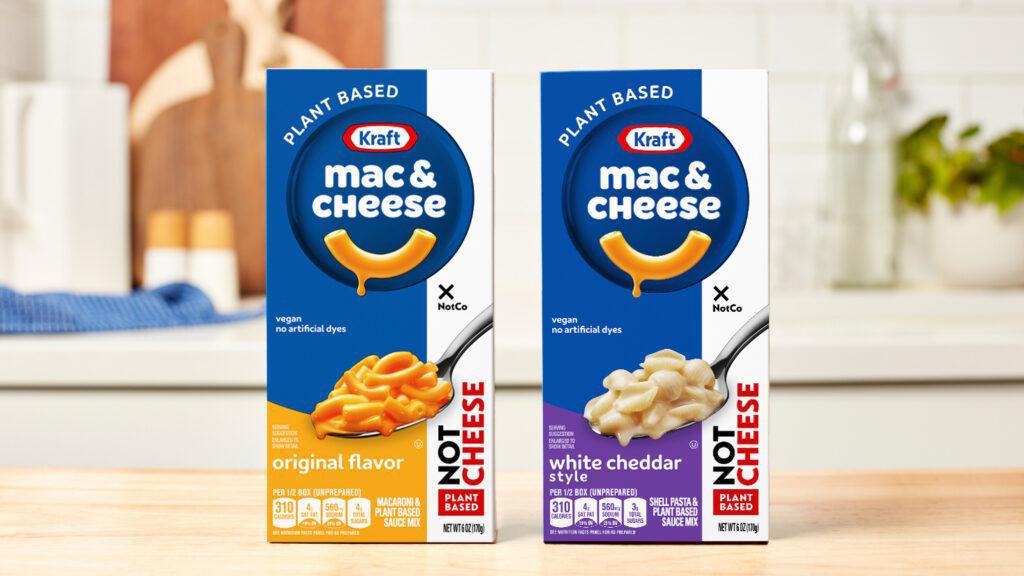Plant-based meat substitutes need new messages in 2024
Sales of the category, which initially exploded due to a number of factors, slowed down last year.
This article is available for reading in Trade magazin 2024/4
Since the sector’s boom in 2019, two big alternative protein producers – Beyond Meat and Impossible Foods – have dominated the industry that is still in its infancy. Last year both companies changed their operations, with layoffs, consolidating manufacturing bases, management changes and reprioritising their product portfolios.
Expanding the buyer base is key
Impossible Foods plans to build momentum in the new year by expanding its consumer base. The brand wants to attract more meat eaters and flexitarian consumers, but this requires wording messages that don’t make meat consumers feel “shame” but show that they can make small changes to contribute to their own and the planet’s health.

Beyond Meat trials a new plant-based pizza with Pizza Hut in the UK
“The problem is not so much the product, but the communication message. We need to do away with misconceptions and be more proactive in talking about the nutritional benefits of our products”, told Leslie Sims, chief marketing officer of Impossible Foods. Emerging brands such as Meati Foods hope to draw from a wider consumer base from the start. The Colorado-based company isn’t particularly anti-meat: they are saying that there is enough polarisation in the world today, so there is no need for it in the field of nutrition.
Taste still comes before sustainability
Most of the plant-based brand founders remain passionate about the sustainability aspects of the industry – some founded their companies for this very reason – but this enthusiasm isn’t necessarily shared by consumers. Experts say sustainability is more important in other markets than in the US, and a commitment to sustainability is more of an integral part of consumers’ everyday lives in Europe, e.g. for US consumers products are measured mainly in terms of taste, availability, quality and health benefits.

Impossible Foods started plant-based hotdog tasting on the streets of New York at Christmas
Most often it is because of the product’s taste that shoppers don’t get to like a plant-based meat alternative or never buy it again after trying. The sector has also encountered resistance from consumers, who want more whole, pure ingredients in alternative products rather than additives that mimic animal protein. A report by Grand View Research also underlines the bigger demand for whole foods rich in fibre, vitamin C and iron, which is in line with the Whole Foods Market report that says plant-based companies need to “clean up” labels if they want to reach consumers.
Not typically plant-based
In a sector that has a strong track record of companies with already brand-loyal customers, product innovations can also come from players one wouldn’t have thought of. Kellogg Co, Maple Leaf and Conagra are slowly outperforming alternative protein start-ups and purely plant-based brands such as Beyond and Impossible with their own plant-based product offerings. A study by Grand View Research claims these large companies are able to leverage their broad consumer base to offer their products at lower prices. In the alternative protein market the focus has so far been on converting favourites to plant-based ones – just think of Kraft Heinz and NotCo’s plant-based Mac’n’Cheese, launched last November.

Heinz and NotCo’s plant-based macaroni and cheese is the third joint innovation by the two companies
According to Jennifer Bartashus, an analyst of Bloomberg Intelligence, this trend could take a new direction in 2024 as companies innovate to create something new and original, rather than imitate the familiar. //
Related news
Is something missing?
Last November the National Association of Plant Based Food Manufacturers…
Read more >World’s biggest dairy company rolls out plant-based brand
Lactalis has launched a new plant-based brand called “Enjoy!”. The…
Read more >Poor Brazilian harvest makes orange juice even more expensive
Brazil is the world’s largest orange juice producer and the…
Read more >Related news
Valeo Foods Completes Acquisition Of Appalaches Nature
Valeo Foods Group has completed the acquisition of Appalaches Nature,…
Read more >Carrefour grows in France and Brazil, lags behind in rest of Europe
Carrefour says it is rather pleased with its financial results…
Read more >Food and beverage innovation plunges nearly 50% since 2007: Mintel
The market research firm said about a quarter of items…
Read more >








